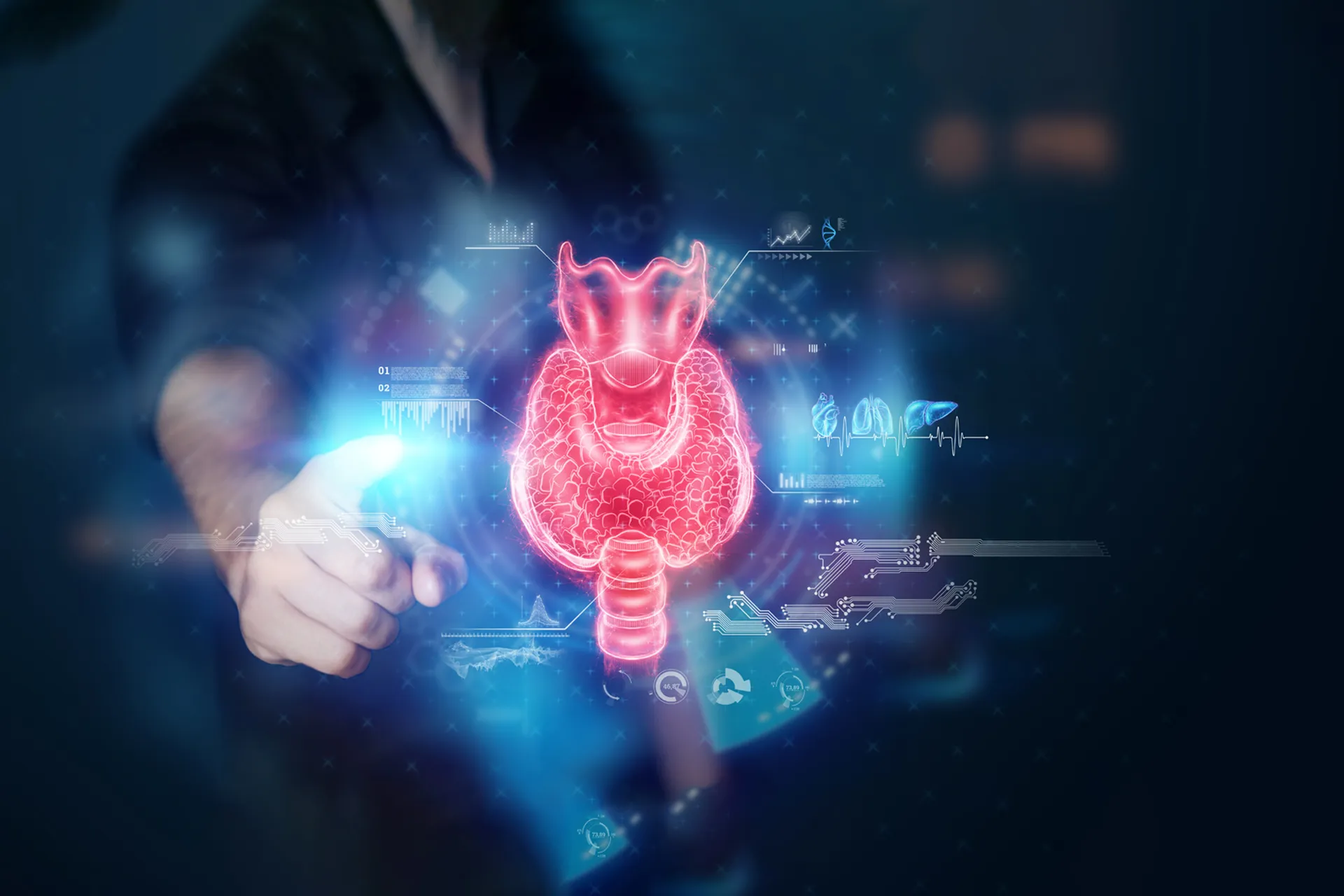Thyroid | 4 min read
Pros and Cons of Keto Diet and Hypothyroidism
Medically reviewed by
Table of Content
Key Takeaways
- A keto diet contains a low percentage of carbohydrates
- Following a keto diet for hypothyroidism can aid in weight loss
- A keto hypothyroidism diet plan may increase the body’s acidity
Hypothyroidism is a condition where the thyroid gland is unable to produce sufficient hormones. Thyroid hormones regulate main body functions like growth, metabolism, and cell repair. Those with hypothyroidism experience symptoms like extreme tiredness, hair loss, or weight gain. Studies reveal that 1-2% of people living in iodine-replete areas have hypothyroidism. Women are more prone to this condition than men.
Those with hypothyroidism usually react well to a protein rich foods that helps to boost their metabolism. Due to this, keto diet is one of the many options you may consider. A keto diet has a good balance of low carbohydrates, moderate protein and high fats. It works on the principle of ketosis, which is a phase in which the body begins to burn fat for providing energy, releasing ketone bodies (acidic chemicals) as a by-product.
When you consume a low-carb diet, your body isn’t getting enough energy from carbohydrates. Thus, it uses up the fat reserves that result in weight loss. Hypothyroidism and keto diet go hand in hand. This is because the excess weight gain in people with hypothyroidism can be resolved by following this diet. However, it is best to consult your doctor before starting it yourself. This is because a modified keto meal plan for hypothyroidism may be more suitable for some.
Here is a brief overview of following a keto diet and hypothyroidism. Please keep in mind that there is no one-size-fits-all approach!
What is a Ketogenic Diet?
A ketogenic diet works on the ratio of 4:1 that indicates the amount of fat content in the food to the combined amount of protein and carbs included in the diet. However, based on many studies, a meal plan of keto for hypothyroidism may include the following percentage of carbs, proteins and fats: Carbohydrates to constitute about 12-15%, while fats from 25-30% with proteins between 50-60%. This was suggested based on a keto diet study for people with Hashimoto’s disease, where the immune system attacks the thyroid.
Additional Read: Everything You Need To Know About Keto Diet
Pros of Keto Diet and Hypothyroidism
Keto diet for hypothyroidism has many benefits. Studies link the keto diet to weight loss in individuals with hypothyroidism. This diet helps to improve sleep and reduces lethargy that is common in hypothyroidism. In short, keto is known to increase muscle mass and decrease body fat. Following a keto diet also helps with good heart health while ensuring your blood sugar is also well under control.
Additional Read: Signs of Hyperthyroidism and HypothyroidismBy restricting carbohydrate consumption in a keto diet, your body gets the required energy from the increased amount of fat intake. However, ensure that you don’t put any dietary stress on your system, which may interfere with thyroid functioning. Gluten products, eggs and corn are some foods that cause such stress, and are believed to be triggers that promote allergies or cravings. Including green leafy vegetables, healthy fats and organic proteins, and keeping yourself hydrated works well when it comes to hypothyroidism and keto.

Cons of Keto Diet and Hypothyroidism
There are also certain disadvantages of choosing a keto diet, some of which include the following.
- Irregularity in bowel movements
- Energy loss
- Muscle cramps
- Bad breath
Low carbs help to lower insulin levels. This makes it difficult for the liver to convert inactive thyroid hormones to active T3 form. Another concern is the as the body goes into extended ketosis, it may aggravate acidity, which can lead to inflammation.
Considering these risk factors, it is essential that you start a keto diet under proper medical guidance. It is equally important to assess the condition of your liver before starting this diet. Ketone bodies form in the liver mitochondria. These ketones can strain the liver.
If your body uses such ketones as the main source of energy, this will cause additional stress to the liver.
Before you choose the keto diet for your hypothyroidism, check with your doctor and nutritionist. It is best to know if it is a feasible option for you. Connect with the closest and most popular nutritionists and dieticians on Bajaj Finserv Health. Get customize advice to suit your needs and a hypothyroidism diet plan based on your health parameters.
References
- https://academic.oup.com/bmb/article/99/1/39/298307
- https://www.ncbi.nlm.nih.gov/pmc/articles/PMC4258944/
- https://www.ncbi.nlm.nih.gov/pmc/articles/PMC5782363/
Disclaimer
Please note that this article is solely meant for informational purposes and Bajaj Finserv Health Limited (“BFHL”) does not shoulder any responsibility of the views/advice/information expressed/given by the writer/reviewer/originator. This article should not be considered as a substitute for any medical advice, diagnosis or treatment. Always consult with your trusted physician/qualified healthcare professional to evaluate your medical condition. The above article has been reviewed by a qualified doctor and BFHL is not responsible for any damages for any information or services provided by any third party.





